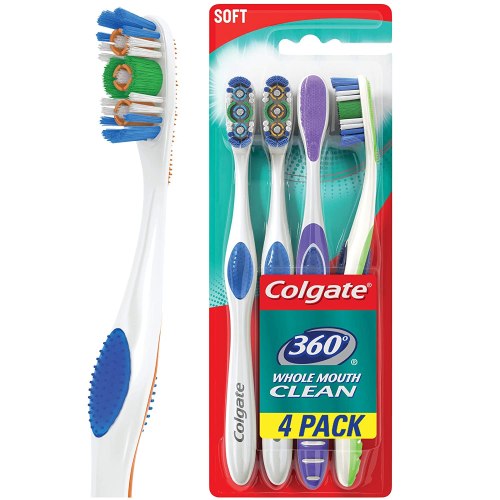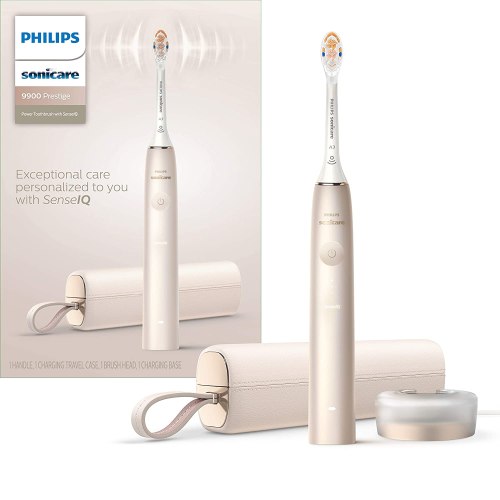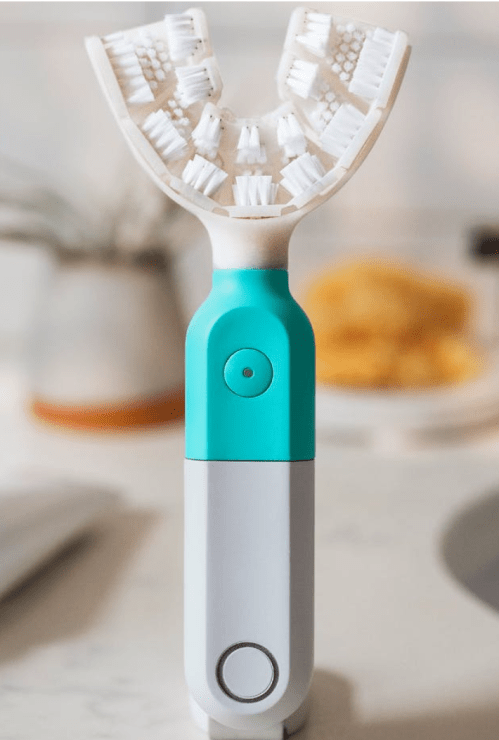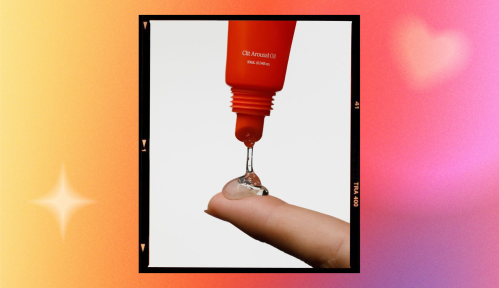Our editors independently select these products. Making a purchase through our links may earn Well+Good a commission
According to a recent survey from Phillips Sonicare, more than half of Americans believe that occasionally experiencing bleeding and-or gum soreness while brushing or flossing is normal. And while a little bit of blood in your spit every once in a while may not be a big deal, if it’s happening every time you reach for your toothbrush, dentists want you to start paying attention.
Experts in This Article
dentist and founder and CEO of SymplBrush
Tim Donley, DDS, is a dentist in Kentucky and a Philips Sonicare Oral Systemic Health Advisory Board Member.
“Bleeding gums on a regular basis is abnormal,” says Tim Donley, DDS, a dentist in Kentucky and Philips Sonicare Oral Systemic Health Advisory Board Member. “Healthy gums do not bleed when brushed or flossed. If you see bleeding when you clean your teeth, something is wrong.”
In other words, bleeding gums should not be ignored. Keep reading to find out which warning signs you should be looking out for.
3 reasons why your gums are sore and bleeding
1. You’re brushing too hard
“As a dentist, a lot of the work I do is the consequence of people either brushing too hard and hurting their teeth and gums, or not brushing hard enough to clean their teeth, causing cavities and gum infections,” says Keith Arbeitman, DDS, a dentist in New York City and founder of SymplBrush. “It’s really hard to get it just right. There’s even research that suggests that brushing too hard can cause an increase in gum inflammation for some.”
In this case, the fix is easy: Just lay off the pressure. It can also be helpful to use a toothbrush with soft bristles, like the Colgate 360 Toothbrush, Soft ($10). But even the softest of bristles can cause damage if you’re brushing too hard. To help manage pressure, consider using a pressure-sensitive electric toothbrush, like the Philips Sonicare 9900 Prestige ($380) or SymplBrush ($149).

Colgate 360 Toothbrush, Soft — $10.00
“Use soft bristles as they’re less likely to cause damage to you,” says Dr. Arbeitman. This four-pack from Colgate features soft bristles of various lengths to help remove more plaque and stains than flat-bristled toothbrushes.

Philips Sonicare 9900 Prestige — $380.00
uses artificial intelligence in combination with numerous sensors to automatically adjust the pressure to prevent gum damage. This technology, called SenseIQ utilizes a combination of smart features that observe how you brush. It detects pressure, motion, coverage, duration and frequency to provide feedback in real time and improve your brushing over time

SymplBrush Starter Kit — $149.00
This brush is basically a robot that does all the work for you. In just 30 seconds, it will clean your entire mouth. It features “pressure sensors that turn off if too much force is used, it makes it nearly impossible to injure your teeth and gum,” says Dr. Arbeitman.
2. Your gums are inflamed
If you’ve lessened your brushing pressure and are still seeing regular bleeding after 10 days, it’s time to visit your dentist. This bleeding could be a sign of gum inflammation known as periodontal (or “gum”) disease—which Dr. Donley notes is a more common culprit than your brushing practices.
“Bleeding and sore gums are a sign of inflammation, and that’s bad,” says Dr. Arbeitman. “For your teeth, it means there’s a lot of bacteria stuck in the sticky plaque that coats your teeth and gums.” Long story short: This bacteria triggers your body’s immune response, which mistakenly destroys the bone that keeps your teeth in place, causing them to shift and loosen.
“The inflammation is typically silent,” says Dr. Donley. “You can have it and not even know it. Often, the only sign is bleeding. But, in some instances, you may also note loose or shifting teeth and bad breath.”
3. There are other underlying health issues
In some cases, oral bleeding may signify that something else is going on in your body. “The body is an interconnected system, with a strong connection between oral and overall health,” says Dr. Donley. “Many studies have demonstrated oral-systemic health, or link between poor oral health and systemic diseases, such as heart disease, stroke, diabetes, dementia, rheumatoid arthritis, pregnancy complications, and more.”
If you’re concerned, go ahead and chat with your dentist. “There’s a very long list of possibilities, most of which I have never encountered in twenty years of clinical practice,” says Dr. Arbeitman. “If you observe these signs, I’d recommend you avoid a deep google dumpster dive and simply let your dentist know what you’re observing so you can arrive at a proper diagnosis.”
Oh hi! You look like someone who loves free workouts, discounts for cutting-edge wellness brands, and exclusive Well+Good content. Sign up for Well+, our online community of wellness insiders, and unlock your rewards instantly.
Sign up for the Well+Good SHOP Newsletter
Get exclusive deals on wellness, beauty, fitness, and food products that have been hand-picked by our editors.
Got it, you've been added to our email list.









